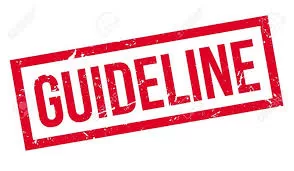The following factors must be kept in consideration:
·possibility of undue influence on witness(es);
·possibility of threats to witness(es);
·possibility that non-deferral would enable subsequent witnesses giving evidence on similar facts to tailor their testimony to circumvent the defence strategy;
·possibility of loss of memory of the witness(es) whose examination-in-chief has been completed;
·occurrence of delay in the trial, and the non-availability of witnesses, if deferral is allowed, in view of Section 309(1) of the Cr.P.C.
[ “309. Power to postpone or adjourn proceedings. – (1) In every inquiry or trial the proceedings shall be continued from day-to-day until all the witnesses in attendance have been examined, unless the Court finds the adjournment of the same beyond the following day to be necessary for reasons to be recorded…” See also Vinod Kumar v State of Punjab, (2015) 3 SCC 220; and Lt Col. SJ. Chaudhary v. State (Delhi Administration), (1984) 1 SCC 722]
These factors are illustrative for guiding the exercise of discretion by a Judge under Section 231(2) of the Cr.P.C.”
It is of utmost significance to note here that para 12 then minces no words in making it absolutely clear that, “The following practice guidelines should be followed by trial courts in the conduct of a criminal trial, as far as possible:
i. a detailed case-calendar must be prepared at the commencement of the trial after framing of charges;
ii. the case-calendar must specify the dates on which the examination-in-chief and cross-examination (if required) of witnesses is to be conducted;
iii. the case-calendar must keep in view the proposed order of production of witnesses by parties, expected time required for examination of witnesses, availability of witnesses at the relevant time, and convenience of both the prosecution as well as the defence, as far as possible;
iv. testimony of witnesses deposing on the same subject-matter must be proximately scheduled;
v. the request for deferral under Section 231(2) of the Cr.P.C. must be preferably made before the preparation of the case-calendar;
vi. the grant for request of deferral must be premised on sufficient reasons justifying the deferral of cross-examination of each witness, or set of witnesses;
vii. while granting a request for deferral of cross-examination of any witness, the trial courts must specify a proximate date for the cross-examination of that witness, after the examination-in-chief of such witness(es) as has been prayed for;
viii. the case-calendar, prepared in accordance with the above guidelines, must be followed strictly, unless departure from the same becomes absolutely necessary;
ix. in cases where trial courts have granted a request for deferral, necessary steps must be taken to safeguard witnesses from being subjected to undue influence, harassment or intimidation.
